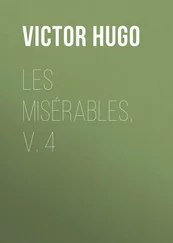Lascelles Wraxall - Les Misérables, v. 1
Здесь есть возможность читать онлайн «Lascelles Wraxall - Les Misérables, v. 1» — ознакомительный отрывок электронной книги совершенно бесплатно, а после прочтения отрывка купить полную версию. В некоторых случаях можно слушать аудио, скачать через торрент в формате fb2 и присутствует краткое содержание. Жанр: literature_19, foreign_antique, foreign_prose, на английском языке. Описание произведения, (предисловие) а так же отзывы посетителей доступны на портале библиотеки ЛибКат.
- Название:Les Misérables, v. 1
- Автор:
- Жанр:
- Год:неизвестен
- ISBN:нет данных
- Рейтинг книги:4 / 5. Голосов: 1
-
Избранное:Добавить в избранное
- Отзывы:
-
Ваша оценка:
- 80
- 1
- 2
- 3
- 4
- 5
Les Misérables, v. 1: краткое содержание, описание и аннотация
Предлагаем к чтению аннотацию, описание, краткое содержание или предисловие (зависит от того, что написал сам автор книги «Les Misérables, v. 1»). Если вы не нашли необходимую информацию о книге — напишите в комментариях, мы постараемся отыскать её.
Les Misérables, v. 1 — читать онлайн ознакомительный отрывок
Ниже представлен текст книги, разбитый по страницам. Система сохранения места последней прочитанной страницы, позволяет с удобством читать онлайн бесплатно книгу «Les Misérables, v. 1», без необходимости каждый раз заново искать на чём Вы остановились. Поставьте закладку, и сможете в любой момент перейти на страницу, на которой закончили чтение.
Интервал:
Закладка:
He dreamed of the grandeur and presence of God; of future eternity, that strange mystery; of past eternity, that even stranger mystery; of all the infinities which buried themselves before his eyes in all directions: and without seeking to comprehend the incomprehensible, he gazed at it. He did not study God; he was dazzled by Him. He considered this magnificent concourse of atoms which reveals forces, creates individualities in unity, proportions in space, innumerability in the Infinite, and through light produces beauty. Such a concourse incessantly takes place, and is dissolved again, and hence come life and death.
He would sit down on a wood bench with his back against a rickety trellis, and gaze at the stars through the stunted sickly profiles of his fruit trees. This quarter of an acre, so poorly planted, and so encumbered with sheds and out-houses, was dear to him, and was sufficient for him. What more was wanting to this aged man, who divided the leisure of his life, which knew so little leisure, between gardening by day and contemplation by night? Was not this limited enclosure with the sky for its roof sufficient for him to be able to adore God by turns in His most delicious and most sublime works? Was not this everything, in fact? and what could be desired beyond? A small garden to walk about in, and immensity to dream in; at his feet, what can be cultivated and gathered; over his head, what can be studied and meditated; a few flowers on the earth, and all the stars in the heavens.
CHAPTER XIV
WHAT HE THOUGHT
One last word.
As these details might, especially at the present day, and to employ an expression which is now fashionable, give the Bishop of D – a certain "Pantheistic" physiognomy, and cause it to be believed, either to his praise or blame, that he had in him one of those personal philosophies peculiar to our age, which germinate sometimes in solitary minds, and grow until they take the place of religion, we must lay stress on the fact that not one of the persons who knew Monseigneur Welcome believed himself authorized in thinking anything of the sort. What enlightened this man was his heart, and his wisdom was the product of the light which emanates from it.
He had no systems, but abundance of deeds. Abstruse speculations contain vertigo, and nothing indicates that he ventured his mind amid the Apocalypses. The apostle may be bold, but the bishop must be timid. He probably refrained from going too deep into certain problems reserved to some extent for great and terrible minds. There is a sacred horror beneath the portals of the enigma; the dark chasms gape before you, but something tells you that you must not enter: woe to him who penetrates. Geniuses, in the profundities of abstraction and pure speculation, being situated, so to speak, above dogmas, propose their ideas to God; their prayer audaciously offers a discussion, and their adoration interrogates. This is direct religion, full of anxiety and responsibility for the man who attempts to carry the escarpment by storm.
Human meditation has no limits; at its own risk and peril it analyzes and produces its own bedazzlement; we might almost say that, through a species of splendid reaction, it dazzles nature with it. The mysterious world around us gives back what it receives, and it is probable that the contemplators are contemplated. However this may be, there are in the world men – are they men? – who distinctly perceive on the horizon of dreamland the heights of the Absolute, and have the terrible vision of the mountain of the Infinite. Monseigneur Welcome was not one of these men, for he was not a genius. He would have feared these sublimities, on which even very great men, like Swedenborg and Pascal, fell in their insanity. Assuredly, such powerful reveries have their utility, and by these arduous routes ideal perfection is approached, but he took a short-cut, – the Gospel. He did not attempt to convert his chasuble into Elijah's cloak, he cast no beam of the future over the gloomy heaving of events; there was nothing of the prophet or the Magus about him. This humble soul loved, that was all.
It is probable that he expanded prayer into a superhuman aspiration; but a man can no more pray too much than he can love too much, and if it were a heresy to pray further than the text, St Theresa and St Jérôme would be heretics. He bent down over all that groaned and all that expiated; the universe appeared to him an immense malady; he felt a fever everywhere; he heard the panting of suffering all around him, and without trying to solve the enigma, he sought to heal the wound. The formidable spectacle of created things developed tenderness in him; he was solely engaged in finding for himself and arousing in others the best way of pitying and relieving. Existence was to this good and rare priest a permanent subject of sorrow seeking for consolation.
There are some men who toil to extract gold, but he labored to extract pity; the universal wretchedness was his mine. Sorrow all around was only an opportunity for constant kindness. "Love one another" he declared to be complete; he wished for nothing more, and that was his entire doctrine. One day the Senator, who believed himself a "philosopher," said to the Bishop: "Just look at the spectacle of the world; all are fighting, and the strongest man is the cleverest. Your 'love one another' is nonsense." "Well," Monseigneur Welcome replied, without discussion, "if it be nonsense, the soul must shut itself up in it like the pearl in the oyster." He consequently shut himself up in it, lived in it, was absolutely satisfied with it, leaving on one side those prodigious questions which attract and terrify, the unfathomable perspectives of the abstract, the precipices of metaphysics, all those depths which for the apostle converge in God, for the atheist in nothingness: destiny, good, and evil, the war of being against being, human consciousness, the pensive somnambulism of the animal, transformation through death, the recapitulation of existences which the grave contains, the incomprehensible grafting of successive loves on the enduring Me, essence, substance, the Nil and Ens nature, liberty, necessity; in a word, he avoided all the gloomy precipices over which the gigantic archangels of the human mind bend, the formidable abysses which Lucretius, Manou, St. Paul, and Dante contemplate with that flashing eye which seems, in regarding Infinity, to make stars sparkle in it.
Monseigneur Welcome was simply a man who accepted mysterious questions without scrutinizing, disturbing them, or troubling his own mind, and who had in his soul a grave respect for the shadow.
BOOK II
THE FALL
CHAPTER I
THE CLOSE OF A DAY'S MARCH
At the beginning of October, 1815, and about an hour before sunset, a man travelling on foot entered the little town of D – . The few inhabitants, who were at the moment at their windows or doors, regarded this traveller with a species of inquietude. It would be difficult to meet a wayfarer of more wretched appearance; he was a man of middle height, muscular and robust, and in the full vigor of life. He might be forty-six to forty-eight years of age. A cap with a leather peak partly concealed his sunburnt face, down which the perspiration streamed. His shirt of coarse yellow calico, fastened at the neck by a small silver anchor, allowed his hairy chest to be seen; he had on a neck-cloth twisted like a rope, trousers of blue ticking worn and threadbare, white at one knee and torn at the other; an old gray ragged blouse patched at one elbow with a rag of green cloth; on his back a large new well-filled and well-buckled knapsack, and a large knotty stick in his hand. His stockingless feet were thrust into iron-shod shoes, his hair was clipped, and his beard long. Perspiration, heat, travelling on foot, and the dust, added something sordid to his wretched appearance. His hair was cut close and yet was bristling, for it was beginning to grow a little, and did not seem to have been cut for some time.
Читать дальшеИнтервал:
Закладка:
Похожие книги на «Les Misérables, v. 1»
Представляем Вашему вниманию похожие книги на «Les Misérables, v. 1» списком для выбора. Мы отобрали схожую по названию и смыслу литературу в надежде предоставить читателям больше вариантов отыскать новые, интересные, ещё непрочитанные произведения.
Обсуждение, отзывы о книге «Les Misérables, v. 1» и просто собственные мнения читателей. Оставьте ваши комментарии, напишите, что Вы думаете о произведении, его смысле или главных героях. Укажите что конкретно понравилось, а что нет, и почему Вы так считаете.












